Do you remember the slogan ‘More reasons to shop at Morrisons’? David Potts doesn’t seem to.

The new chief executive of Morrisons wants to make the grocery retailer as simple as possible for customers.
Potts’ first results presentation as Morrisons boss was full of contradictions. High-street convenience stores are one of the fastest-growing parts of the grocery industry, but Morrisons is selling off its small stores in a messy £25m deal that still leaves it on the hook for £20m leases.
According to industry body IGD, sales from superstores and hypermarkets will fall by 2.9% in the next five years, yet Potts has pledged to focus the future of Morrisons on its supermarkets. At the same time, Potts has given up on 11 stores and is closing them, putting 900 jobs at risk.
Potts, a former executive at Tesco, laid out six priorities that Morrisons needs to work on to get back on track. This included pledges “to be more competitive” and “to serve customers better”. Another list of four key financial objectives was led by improving like-for-like sales performance and rebuilding profits.
This is hardly rocket science. Potts said the key to rescuing Morrisons was “listening to customers” and delivering what they want, which apparently revolves around simpler promotions and more in-store services such as mobile phone repairs.
However, in a now-famous quote, Henry Ford once said: “If I had asked people what they wanted, they would have said faster horses.”
Listening to shoppers is only part of the solution for Morrisons. It should help its existing shoppers to spend more in its supermarkets, rather than splitting their grocery shopping between Morrisons, online shopping and the discounters Aldi and Lidl, which is what has caused so many problems for the ‘big four’ grocers.
But Morrisons must not just improve its stores, it must make sure it is better than rival supermarkets. Given that Aldi and Lidl are cheaper, Tesco is larger, and Sainsbury’s and Waitrose are seen as more upmarket, Morrisons has a tough task ahead.
As such, Potts’ approach looks like retrenchment from Morrisons, an acceptance that it should focus on its niche as a northern-based value retailer with a strong reputation for its fresh food.
The problem for Morrisons, though - as well as Tesco, Asda and Sainsbury’s - is that even their niches and established markets are going to come under increasing pressure.
While the big four are scrapping plans to open new stores, Aldi and Lidl are looking to double in size over the next decade. Lidl plans to open almost 300 shops within the M25 and dozens of stores in affluent parts of London, including Mayfair, Chelsea and Highgate, which is the heartland of Waitrose.
Morrisons used the ‘More reasons to shop at Morrisons’ slogan for more than 30 years as Sir Ken Morrison grew the retailer from its Yorkshire powerbase into the fourth-largest supermarket chain in the country. Marc Bolland, now the boss of Marks & Spencer, then stabilised the grocer and helped to modernise the brand with a glitzy marketing campaign featuring the music of Take That and using television stars Richard Hammond, Alan Hansen and Melanie Sykes.
But since then, Morrisons has struggled to find its place in the grocery market. The company is being squeezed between Aldi and Lidl on one side and Asda on the other in its key northern markets.
With Potts now firmly at the wheel of Morrisons, and Tesco selling its South Korean business for more than £4bn, we are approaching a fascinating period in the grocery industry.The big four have steadied the ship and rebuilt their balance sheets, and now we will discover whether their sharp drop in sales was a blip caused by complacency, or whether we really are witnessing a changing of the guard in food retailing.
Given Aldi and Lidl’s ambitious expansion plans, there could be more pain to come for Morrisons and its peers. Focusing on the basics is a laudable strategy for Potts, but with more competitors than ever before, shoppers have ‘more reasons’ to go elsewhere.
Graham Ruddick is senior business reporter at The Guardian























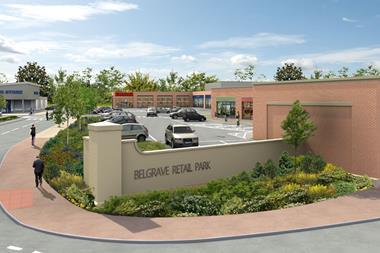
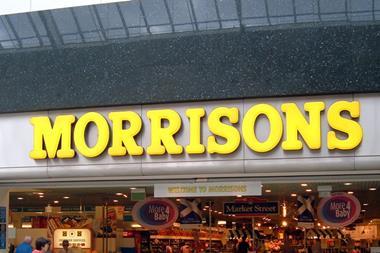
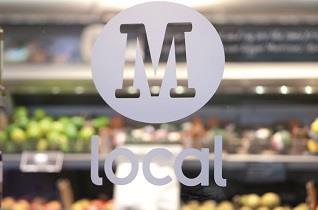
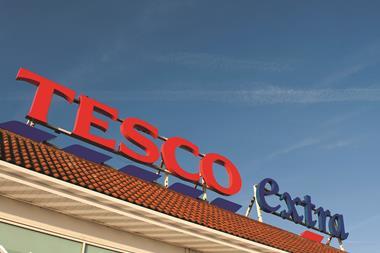
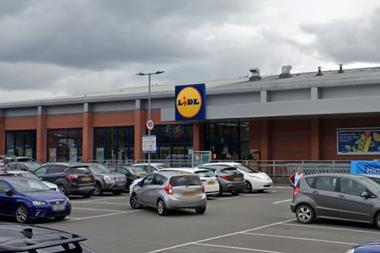
No comments yet